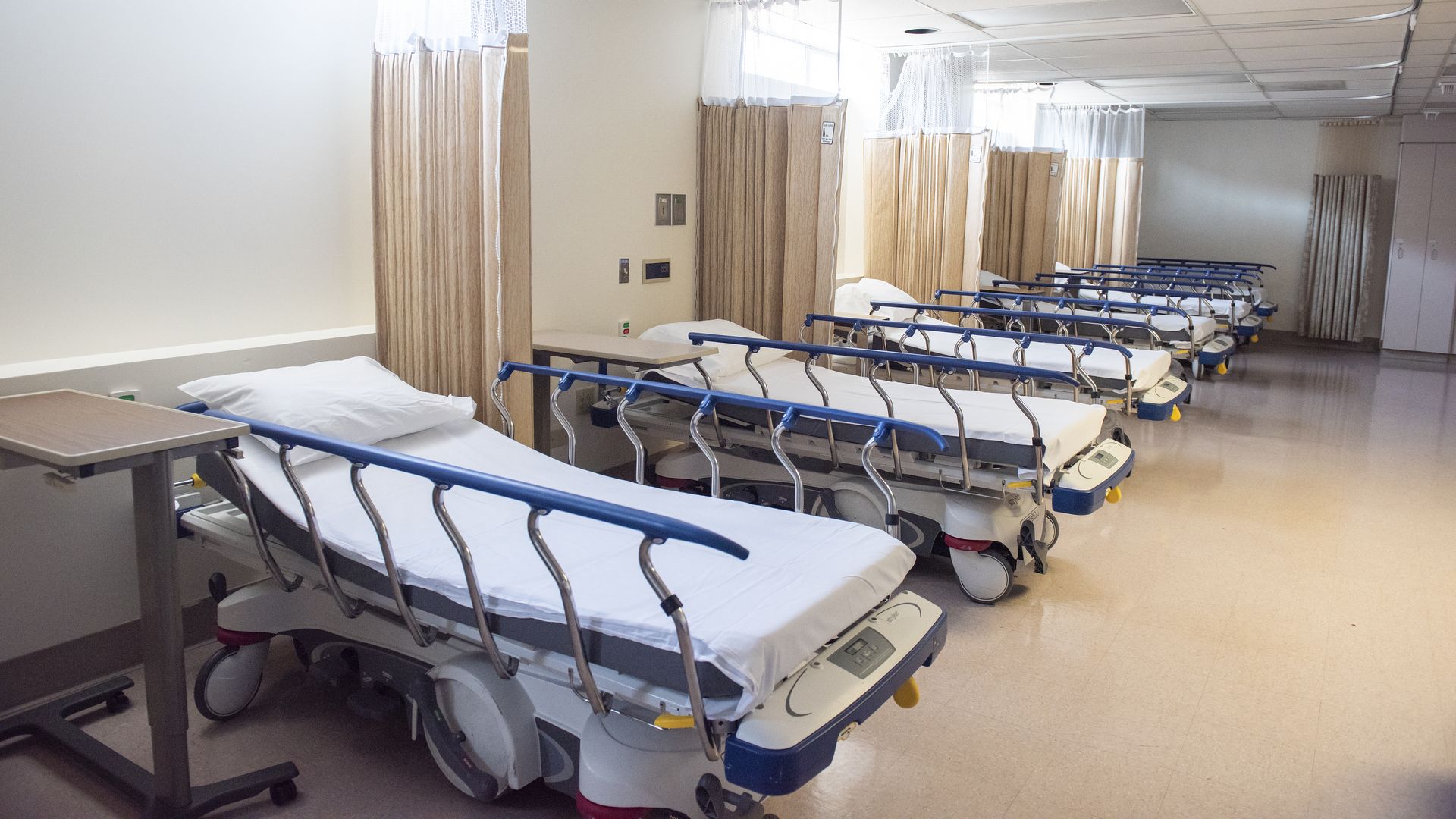Jan 9, 2020 - Health
A care model for the sickest patients doesn't work
Add Axios as your preferred source to
see more of our stories on Google.

An emergency room is a common site for "superutilizers." Photo: Leonard Ortiz/Digital First Media/Orange County Register via Getty Images
